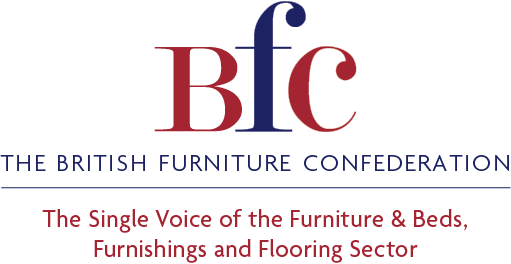The UK’s Furniture & Furnishings (Fire) (Safety) Regulations were introduced in 1988 to safeguard consumers against the devastating effect of toxic fumes and rapid burning associated with foam fillings. The regulations have been shown to save many 100s of lives and thousands of injuries over the years1. Consequently, The British Furniture Confederation (BFC) fully supports them.
In addition, we recognise the importance of, and fully support, the EU’s REACH Regulations, which ensure that any chemical that is found to cause harm to human health or the environment is effectively controlled, or removed from use. Of the chemicals listed as of concern, DecaBDE, which historically was used as a back coating for upholstery fabrics, is already listed as a Substance of Very High Concern (SVHC) under the REACH regulations. This means its use is severely restricted. As far as we are aware it is no longer used as a fire retardant for furniture fabrics in the UK, and hasn’t been for a number of years. New legislation – https://www.fira.co.uk/news/article/decabde-flame-retardant-restrictions – will prevent nearly all use of this chemical.
It is our belief that the combination of these two Regulations ensures that the upholstered furniture on sale in the UK is the safest in the world with regard to fire performance; and reflects the latest knowledge
The BFC has long campaigned to have the Regulations revised to reflect modern materials and manufacturing processes, as well as addressing a number of areas in the Regulations that needed added clarity. We welcomed the decision by the Department for Business, Energy and Industrial Strategy (BEIS) to launch a full revision of the Regulations and fully supported its stated aim to reduce the use of fire retardant chemicals.
But while the recent consultation on proposed changes to the Regulations had a number of positive features, the BFC were unable to support BEIS’ proposals as we do not believe that the changes will satisfy BEIS own targets of reducing the use of fire retardant chemicals, while maintaining the current levels of fire safety for both consumers and the fire service.
We hope that BEIS will take account of the views of the furniture industry when it publishes its response to the consultation in the coming weeks.
We are also aware of the potential waste disposal issue if DecaBDE is listed as a Persistent Organic Pollutant and we will work with the various authorities to address it.
Ends
1 A statistical report to investigate the effectiveness of the Furniture and Furnishings (Fire) (Safety) Regulations 1988 – Greenstreet Berman/BIS 2009

